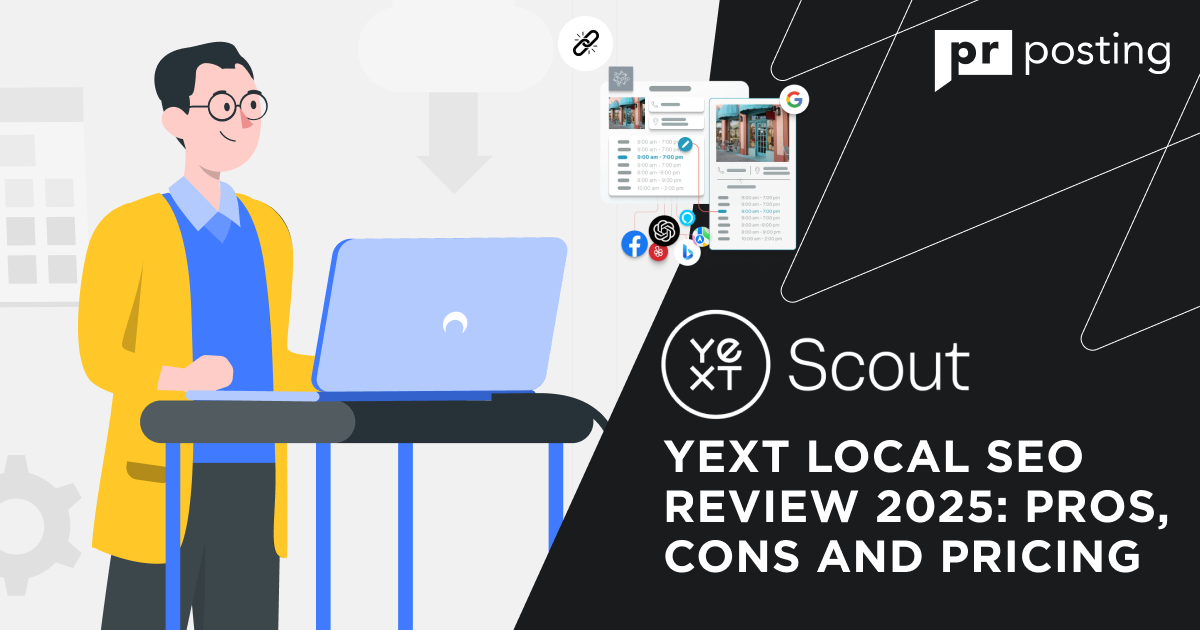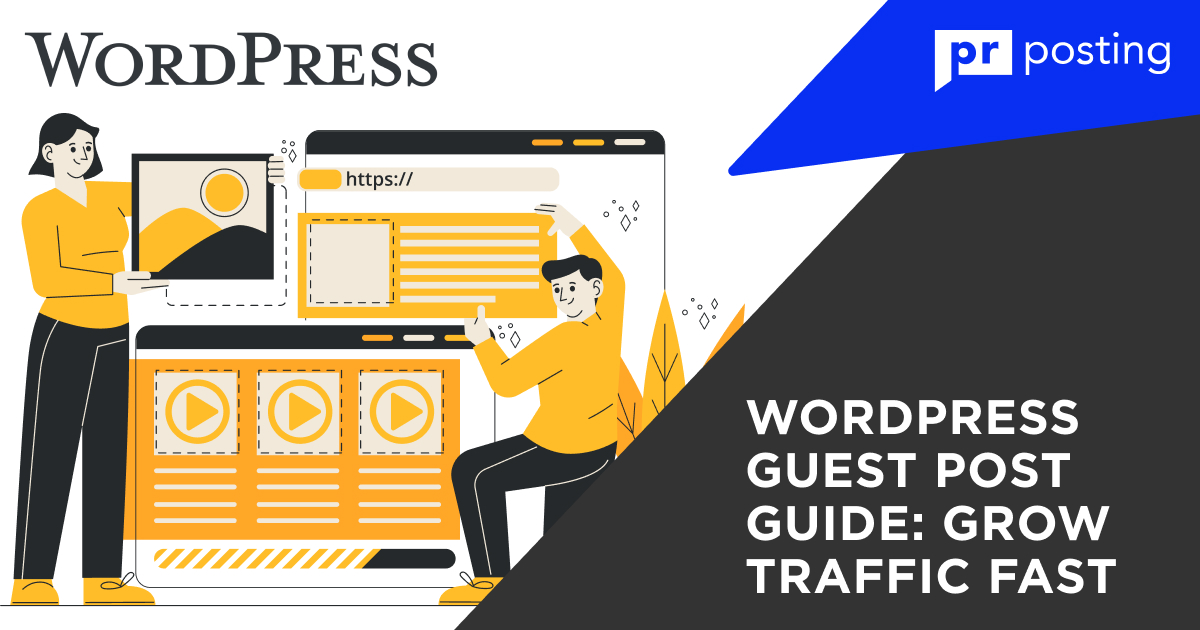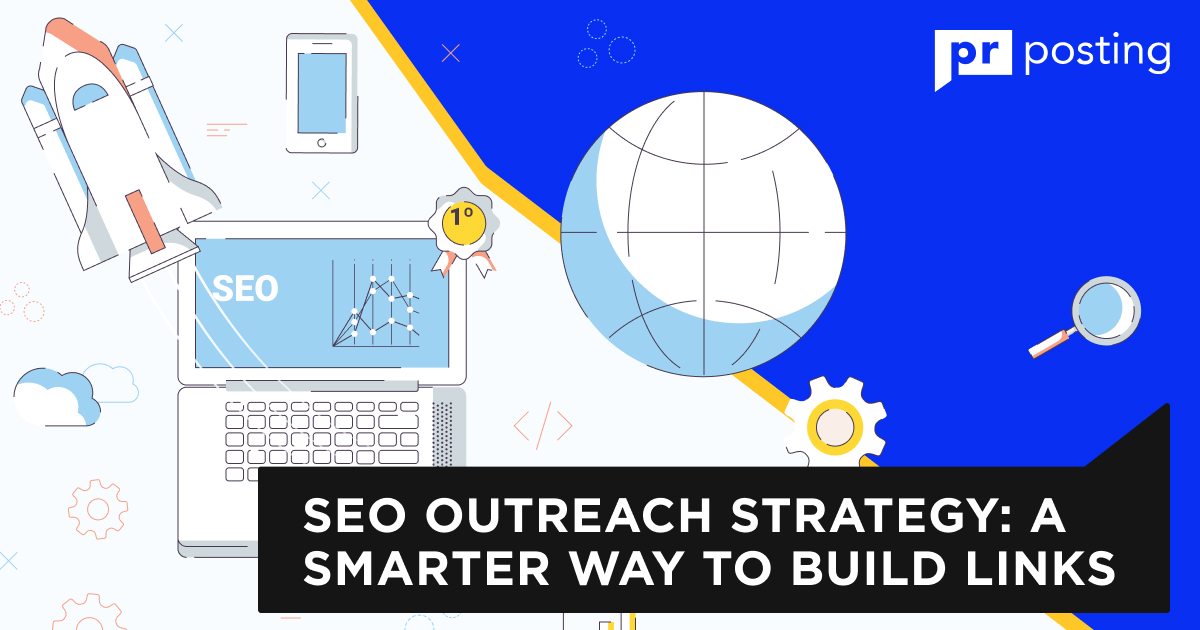Yext Local SEO Review 2025: Pros, Cons, and Pricing

What Does Yext Do?
Yext simplifies how businesses handle local visibility.
- Syncs your location info across major sites.
- Automates review collection and replies.
- Adds structured content that search engines understand.
You don’t need to copy and paste your address 100 times. Yext handles that.
Why Businesses Use Yext in 2025
Most people use Yext to avoid manual work.
Here’s why:
- It handles 50+ locations without headaches.
- Offers one dashboard for updates and reviews.
- Smart replies save hours on customer care.
What is Yext used for in 2025? Primarily, cleaning up your online footprint quickly.
Core Features of Yext for Local SEO
Listings and Knowledge Graph
Yext pulls all your location data into one place. Then, it spreads it across search engines, directories, apps, and maps.
- Your address stays consistent.
- Google and Apple get the correct info.
- The structured data helps AI rank your pages faster.
That’s good news if your locations show up differently on Yelp, Google Maps, and Apple.
Reviews and Reputation Management
Customer feedback isn’t just monitored. It’s organized.
You’ll see everything in one feed.
- Yext watches for new reviews across platforms.
- Suggests AI-generated replies.
- Let you invite reviews from your customers.
You stay ahead of poor feedback without juggling tabs.
Search and Pages
This feature lets you create local pages fast.
Think product pages, store finders, or FAQs.
- Pages are built with local SEO in mind.
- On-site widgets help visitors find things quickly.
No web developer needed. No messy code either.
AI-Powered Review Insights
This tool highlights customer trends.
You’ll spot patterns before they cause problems.
- Tracks how people feel about your brand.
- Flags new review themes.
- Shows spikes in issues by location.
Useful for franchises that need to act fast.
Notifications and Workflow Tools
Get updates. Assign tasks. Track what’s done.
- Alerts help you fix listings fast.
- Inboxes gather everything in one spot.
- You can assign reviews to team members.
This keeps teams aligned, even across dozens of stores.
Yext Pros
Ease of Use and Interface
Everything lives in one clean space. The dashboard is simple and fast.
- You won’t dig through menus.
- Listings, reviews, and alerts all connect.
No guesswork. No endless clicks.
Time Saving Features
This is where Yext SEO shines.
- You can push updates in bulk
- It collects reviews from multiple platforms
That alone saves hours each week.
Helpful for Multi-Location Businesses
Big chains love Yext. So do regional brands.
- One login for all store reviews.
- Central place to update business hours, addresses, and menus.
If you’re managing over 25 listings, this helps.
Reliable Support and AI Guidance
Support answers fast. AI tools give quick ideas.
- You’ll get help setting up.
- You’ll get smart review suggestions.
And the help centre doesn’t feel like a maze.
Yext Cons
Pricing Concerns
Let’s talk about cost. Yext pricing isn’t easy on every wallet. Especially if you’re a smaller brand, the base price may be high.
Here’s what might hold you back:
- Rates are higher than those of many Yext competitors.
- Costs grow fast as your locations grow.
- Monthly fees can climb even if you use only basic tools.
It’s not about overcharging. But Yext seems focused on larger players.
For a small shop or solo consultant, the math might not work.
Limited Review Control
Yext helps you manage reviews. But not all the way.
Some features feel locked.
- You can’t fully customize the layout when you download reviews.
- Some platforms don’t sync instantly.
- Editing or replying from the dashboard sometimes lags.
It works, but the polish isn’t always there. If reviewing visibility is your main goal, you might want more freedom.
Learning Curve for New Users
Setup can get bumpy. Especially if you’re new to Yext SEO.
- First-time users often feel stuck in the dashboards.
- There are tons of settings and data points.
- The help docs? Big, long, and tricky to scan.
Once you get it, it’s fine. But if you need plug-and-play speed, Yext might slow you down.
Is Yext Worth It in 2025?
Who Benefits Most from Yext
Some industries see big wins fast:
- Healthcare chains need accurate listings across networks.
- Hotels love instant updates and review tools.
- Retail brands value the location-level insights.
- Banks and service firms use it to unify brand messaging.
If your business has more than five locations, what Yext does starts to pay off quickly.
When It Might Not Be the Best Fit
But Yext isn’t perfect for everyone:
- Startups with tight marketing budgets.
- Solo agencies managing just one client.
- Businesses that want full control over each page.
Yext review forums often note that smaller brands feel boxed in. Especially if they only need listings and review replies.
Yext Pricing Overview
What You Get at Each Package
Here’s a fast breakdown of what each package includes:
Base Package
- Knowledge Graph tools
- Built-in entity types
- App integrations
- Custom fields
- Conversion data
- Admin-level access
- Yext headless CMS
- Image and file tools
Starter Package
The package adds:
- Lead forms
- Insight tools
- Content suggestions
- Scheduled updates
- Sign up for teams
Professional Package
The package includes:
- Enhanced geocoding
- Assistant bot
- Report builder
- Lead capture boosts
- Multiple update formats
Ultimate Package
The package has the following features:
- Review generation and replies
- Google Q&A support
- Competitive signals
- Sentiment filters
- Analytics for review tone
Each upgrade to a new package adds useful tools. But only some teams will use everything.
So, ask yourself: how does Yext work for your needs?
How Yext Pricing Compares to Competitors
Here’s where things get interesting:
- Moz Local and Uberall charge less for basics.
- Yext bundles more features, but not all users need them.
- Yext depends on the location count and features.
For enterprises? Good deal. For small and medium-sized businesses? Maybe not.
Tips for Getting the Most Value
Use these ideas before you sign:
- Don’t buy what you won’t use.
- Skip top-tier tools unless they’re critical.
- Ask for a trial. Or at least a free demo.
- Request a package that matches your location count.
- Use add-ons only after mastering the basics.
The right plan can save you serious money.
Final Verdict
Pros and Cons
Pros:
- Instant updates to over 100 platforms.
- Clean UI with clear data views.
- Listings, reviews, and pages in one place.
Cons:
- Higher cost than some competitors.
- Learning curve for beginners.
- Limited customisation in some tools.
Who Should Try Yext
- Franchises or multi-location brands;
- National retailers and banks;
- Health providers with multiple branches.
If local visibility and reviews drive your revenue, Yext SEO makes sense.
Alternatives to Consider
- Moz Local for clean listings;
- Uberall for flexible review tools;
- BrightLocal for custom audits.
Each Yext alternative brings its flavour. Try demos before you decide.
More Like This

WordPress Guest Post Guide: Grow Traffic Fast

SEO Outreach Strategy: A Smarter Way to Build Links


